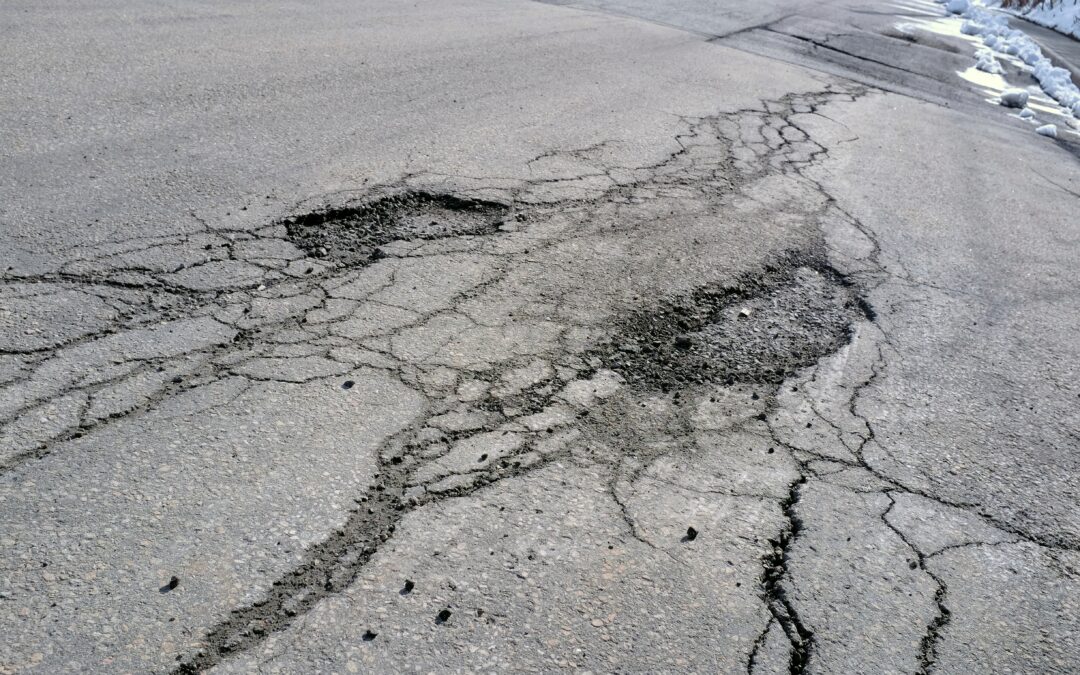Michigan officials need to spend up to $3.9 billion more per year to fully fund road repairs, according to projections released Tuesday by a construction trade group.
The estimate from the Michigan Infrastructure and Transportation Association is an update from the $2.2 billion gap projected in a 2016 study of needs commissioned by then-Gov. Rick Snyder.
The study explored several remedies, none of which likely would be politically popular, including big hikes on the gas tax, raising the sales tax, allowing communities to pursue sales tax increases and assessing a tax on vehicle miles driven.
Even when accounting for additional state and federal funds put toward infrastructure spending, the estimated annual funding gap is now $2.1 billion to $3.9 billion per year, the study concluded.
Failure to fix and maintain existing roads before they deteriorate further would significantly increase the state’s additional road funding needs, potentially up to $11 billion annually, the study concluded.
“The report makes it crystal clear that it’s time to take funding our infrastructure seriously,” Rob Coppersmith, executive vice president of the Michigan Infrastructure and Transportation Association, said during a Tuesday media event.
“The problem you’re facing today is not just a funding issue, it’s a quality of life issue,” he continued. “Funding short-term road fixes by crisis can no longer be the way we fix our roads and keep them safe.”
Currently, 33 percent of Michigan state-operated roads eligible for federal aid are in poor condition, according to the state’s Transportation Asset Management Council. Local roads funded by cities and counties are in worse shape, with 45 percent in poor condition.
Michigan’s infrastructure is primarily funded by a 27.2 cents-per-gallon tax on gasoline and diesel fuel. The state has the seventh-highest per-gallon tax in the country, in part because the 6 percent sales tax applies to fuel.
State gas taxes and registration fees increased slightly under a road funding plan signed by Snyder in 2015, and a 2019 bonding program initiated by Gov. Gretchen Whitmer raised $3.5 billion for highways.
“The cost of inaction is not just imagined here — it’s real,” Brad Williams of the Detroit Regional Chamber of Commerce said at Tuesday’s event. “If we don’t do something soon, you know these costs are only going to go through the roof.”
Michigan is also poised to receive $7.3 billion in one-time funding from the federal Infrastructure Investment and Jobs Act.
Other efforts to raise more money in the last decade have fallen flat.
A 2015 ballot initiative to raise new revenue for roads was walloped at the ballot box, and a proposal by Whitmer to raise the gas tax by 45 cents was panned by lawmakers.
Funding options explored in the study, conducted by the firm Public Sector Consultants on behalf of the association, included:
- Raising the gas tax by 39 cents per gallon to 74 cents per gallon
- Increasing the sales tax by 2 percent to 3 percent to fix roads, which would require a constitutional amendment
- Implementing a tax of 3 cents to 5 cents per mile for every vehicle mile traveled
Whitmer, who won office in 2018 on a pledge to fix roads, told Bridge Michigan last year that she’s not planning on pursuing another major gas tax hike. But she expressed interest in other taxes, including a fee on vehicle miles.
Michigan officials are also mulling a tolling study that in theory could generate up to $1 billion per year for maintaining roads if 14 of the state’s 31 highways were converted into toll roads.
This article originally appeared in Bridge Michigan. For more, click here.

